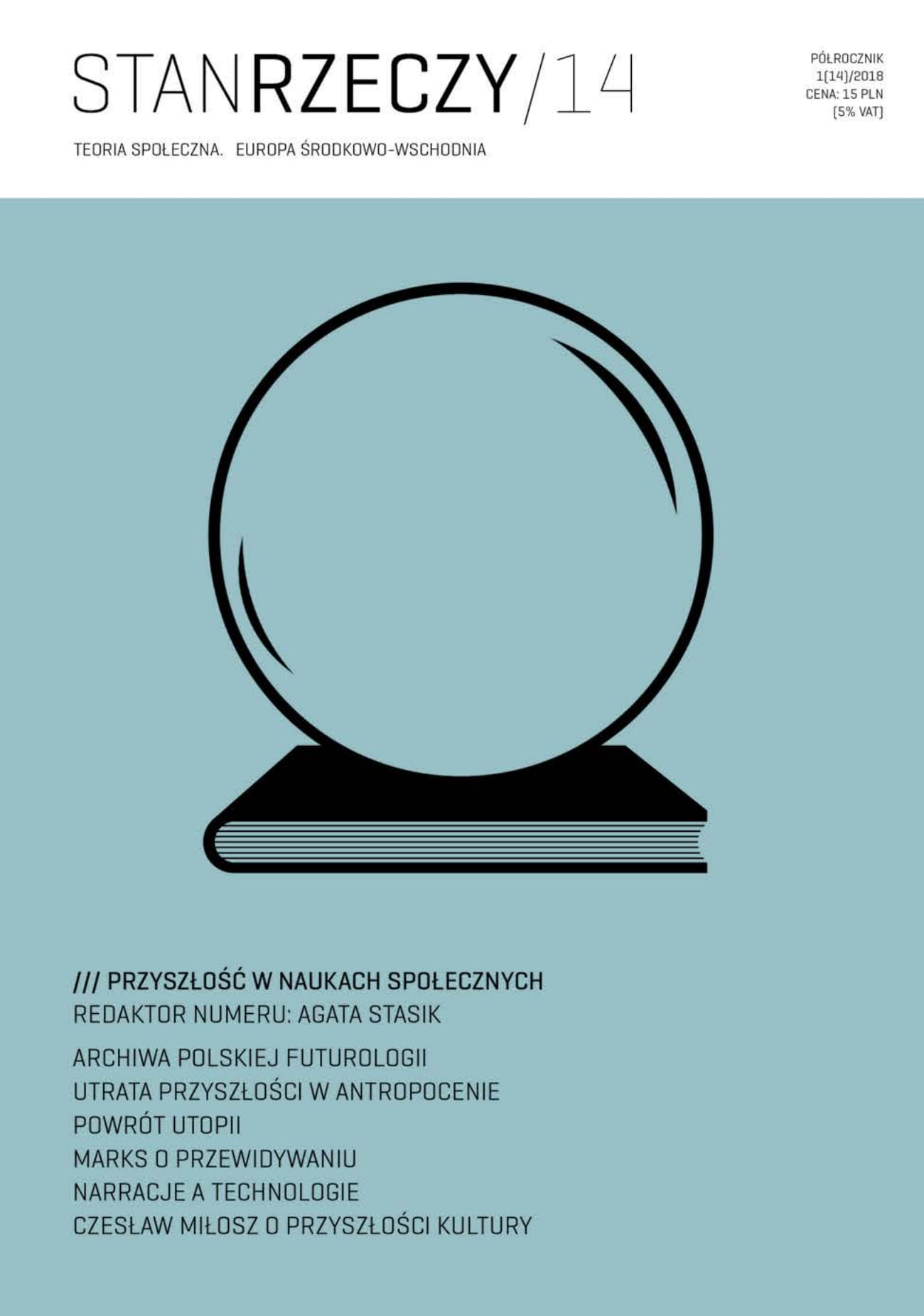Disco imperiów. Czesław Miłosz i przyszłość kultury
Imperial Disco. Czesław Miłosz and the Future of Culture
Author(s): Mikołaj GolubiewskiSubject(s): Literary Texts, Fiction, Polish Literature, Policy, planning, forecast and speculation
Published by: Wydział Socjologii Uniwersytetu Warszawskiego
Keywords: Miłosz;culture;future;Romanticism;prophecy;prophet
Summary/Abstract: The article focuses on Czesław Miłosz’s criticism of the entertainment of the 1970s imperial societies. The aim is to describe how the experience of empires appears in Miłosz’s anthropological science fiction, The Mountains of Parnassus, which appeared posthumously in 2012 (written 1968–1972). The text may seem to be a critique of American capitalism and counterculture’s student riots, but many passages also point to Soviet Russia. Miłosz simultaneously writes about both empires. His experience of tangential points of empire and entertainment in Poland and abroad made Miłosz more sensitive to the crossroads of social standardization, inhumanity of science, and religious salvation. The article explores this complex equation contained in the novel as well as other Miłosz’s 1970s writings which also reveal the problems of the modern human condition. Although Miłosz failed to fulfill the commitments of the science fiction genre, his criticism of mundane play is much stronger in The Mountains of Parnassus than in any of his other works. In this novel, Miłosz considers popular culture a lost project and a state-instituted antidote of social standardization. By reflecting on the future of the society, Miłosz uses science fiction to convey his image of the development of culture. Such science fiction does not realize its potential known from popular culture, but it still is an extraordinary prognosis about the future of culture derives from the romantic sources of foreseeing the state of society and imagining its future identity.
Journal: Stan Rzeczy
- Issue Year: 2018
- Issue No: 14
- Page Range: 89-106
- Page Count: 18
- Language: Polish

